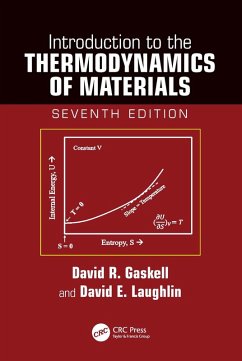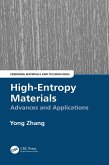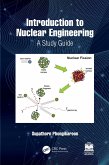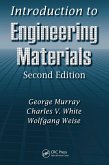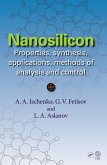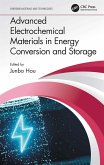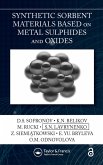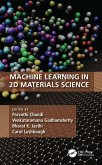125,95 €
125,95 €
inkl. MwSt.
Sofort per Download lieferbar

63 °P sammeln
125,95 €
Als Download kaufen

125,95 €
inkl. MwSt.
Sofort per Download lieferbar

63 °P sammeln
Jetzt verschenken
Alle Infos zum eBook verschenken
125,95 €
inkl. MwSt.
Sofort per Download lieferbar
Alle Infos zum eBook verschenken

63 °P sammeln
- Format: PDF
- Merkliste
- Auf die Merkliste
- Bewerten Bewerten
- Teilen
- Produkt teilen
- Produkterinnerung
- Produkterinnerung

Bitte loggen Sie sich zunächst in Ihr Kundenkonto ein oder registrieren Sie sich bei
bücher.de, um das eBook-Abo tolino select nutzen zu können.
Hier können Sie sich einloggen
Hier können Sie sich einloggen
Sie sind bereits eingeloggt. Klicken Sie auf 2. tolino select Abo, um fortzufahren.

Bitte loggen Sie sich zunächst in Ihr Kundenkonto ein oder registrieren Sie sich bei bücher.de, um das eBook-Abo tolino select nutzen zu können.
Maintaining the substance that has made Introduction to the Thermodynamic of Materials a perennial best seller for decades, this Seventh Edition is updated to reflect the broadening field of materials science and engineering. Chapters are updated and revised throughout to be more useful and logical for students.
- Geräte: PC
- mit Kopierschutz
- eBook Hilfe
Andere Kunden interessierten sich auch für
![High-Entropy Materials (eBook, PDF) High-Entropy Materials (eBook, PDF)]() Yong ZhangHigh-Entropy Materials (eBook, PDF)51,95 €
Yong ZhangHigh-Entropy Materials (eBook, PDF)51,95 €![Introduction to Nuclear Engineering (eBook, PDF) Introduction to Nuclear Engineering (eBook, PDF)]() Supathorn PhongikaroonIntroduction to Nuclear Engineering (eBook, PDF)97,95 €
Supathorn PhongikaroonIntroduction to Nuclear Engineering (eBook, PDF)97,95 €![Introduction to Engineering Materials (eBook, PDF) Introduction to Engineering Materials (eBook, PDF)]() George MurrayIntroduction to Engineering Materials (eBook, PDF)68,95 €
George MurrayIntroduction to Engineering Materials (eBook, PDF)68,95 €![Nanosilicon (eBook, PDF) Nanosilicon (eBook, PDF)]() Anatoly A. IschenkoNanosilicon (eBook, PDF)66,95 €
Anatoly A. IschenkoNanosilicon (eBook, PDF)66,95 €![Advanced Electrochemical Materials in Energy Conversion and Storage (eBook, PDF) Advanced Electrochemical Materials in Energy Conversion and Storage (eBook, PDF)]() Advanced Electrochemical Materials in Energy Conversion and Storage (eBook, PDF)54,95 €
Advanced Electrochemical Materials in Energy Conversion and Storage (eBook, PDF)54,95 €![Synthetic Sorbent Materials Based on Metal Sulphides and Oxides (eBook, PDF) Synthetic Sorbent Materials Based on Metal Sulphides and Oxides (eBook, PDF)]() D. S. SofronovSynthetic Sorbent Materials Based on Metal Sulphides and Oxides (eBook, PDF)54,95 €
D. S. SofronovSynthetic Sorbent Materials Based on Metal Sulphides and Oxides (eBook, PDF)54,95 €![Machine Learning in 2D Materials Science (eBook, PDF) Machine Learning in 2D Materials Science (eBook, PDF)]() Machine Learning in 2D Materials Science (eBook, PDF)131,95 €
Machine Learning in 2D Materials Science (eBook, PDF)131,95 €-
-
-
Maintaining the substance that has made Introduction to the Thermodynamic of Materials a perennial best seller for decades, this Seventh Edition is updated to reflect the broadening field of materials science and engineering. Chapters are updated and revised throughout to be more useful and logical for students.
Dieser Download kann aus rechtlichen Gründen nur mit Rechnungsadresse in A, B, BG, CY, CZ, D, DK, EW, E, FIN, F, GR, HR, H, IRL, I, LT, L, LR, M, NL, PL, P, R, S, SLO, SK ausgeliefert werden.
Produktdetails
- Produktdetails
- Verlag: Taylor & Francis eBooks
- Seitenzahl: 696
- Erscheinungstermin: 23. Juli 2024
- Englisch
- ISBN-13: 9781040023860
- Artikelnr.: 70881307
- Verlag: Taylor & Francis eBooks
- Seitenzahl: 696
- Erscheinungstermin: 23. Juli 2024
- Englisch
- ISBN-13: 9781040023860
- Artikelnr.: 70881307
- Herstellerkennzeichnung Die Herstellerinformationen sind derzeit nicht verfügbar.
David R. Gaskell earned a BSc in metallurgy and technical chemistry at the University of Glasgow, Scotland, and a PhD at McMaster University, Hamilton, Ontario, Canada. Dr. Gaskell's first faculty position was at the University of Pennsylvania, where he taught from 1967 to 1982 in metallurgy and materials science. In 1982, he was recruited at the rank of professor by Purdue University, West Lafayette, Indiana, where he taught until his death in 2013. During Dr. Gaskell's career, he served as a visiting professor at the National Research Council of Canada, Atlantic Regional Laboratory, Halifax, Nova Scotia (1975-1976), and as a visiting professor at the G. C. Williams Co-operative Research Centre for Extraction Metallurgy, in the Department of Chemical Engineering, University of Melbourne, Australia (1995). He also held a position during his sabbatical in Australia as a visiting scientist at the Commonwealth Scientific and Industrial Research Organisation (CSIRO) in Clayton, Victoria. Dr. Gaskell authored the textbooks Introduction to Metallurgical Thermodynamics, Introduction to the Thermodynamics of Materials, and Introduction to Transport Phenomena in Materials Engineering.
David E. Laughlin is the ALCOA Professor of Physical Metallurgy Emeritus in the Department of Materials Science and Engineering at Carnegie Mellon University (CMU), Pittsburgh, Pennsylvania. He also had a courtesy appointment in the Electrical and Computer Engineering Department. He was the principal editor of Metallurgical and Materials Transactions from 1987 to 2016. David is a graduate of Drexel University, Philadelphia, Pennsylvania (1969), and the Massachusetts Institute of Technology, Cambridge, Massachusetts (1973). He is a fellow of the Minerals, Metals and Materials Society (TMS), an honorary member of the American Institute of Mining, Metallurgical, and Petroleum Engineers (AIME), and a fellow of ASM International. He is also the recipient of several CMU awards for teaching and research excellence and was named a distinguished scientist of the TMS Electronic, Magnetic, and Photonic Materials Division. He presented the 2017 ASM Campbell Memorial Lecture and is the recipient of the 2025 ASM International J. W. Gibbs Award. He has authored more than 500 technical publications in the field of phase transformations, physical metallurgy, and magnetic materials; has been awarded 12 patents; and has edited or coedited seven other books, including the fifth and sixth editions of Physical Metallurgy.
David E. Laughlin is the ALCOA Professor of Physical Metallurgy Emeritus in the Department of Materials Science and Engineering at Carnegie Mellon University (CMU), Pittsburgh, Pennsylvania. He also had a courtesy appointment in the Electrical and Computer Engineering Department. He was the principal editor of Metallurgical and Materials Transactions from 1987 to 2016. David is a graduate of Drexel University, Philadelphia, Pennsylvania (1969), and the Massachusetts Institute of Technology, Cambridge, Massachusetts (1973). He is a fellow of the Minerals, Metals and Materials Society (TMS), an honorary member of the American Institute of Mining, Metallurgical, and Petroleum Engineers (AIME), and a fellow of ASM International. He is also the recipient of several CMU awards for teaching and research excellence and was named a distinguished scientist of the TMS Electronic, Magnetic, and Photonic Materials Division. He presented the 2017 ASM Campbell Memorial Lecture and is the recipient of the 2025 ASM International J. W. Gibbs Award. He has authored more than 500 technical publications in the field of phase transformations, physical metallurgy, and magnetic materials; has been awarded 12 patents; and has edited or coedited seven other books, including the fifth and sixth editions of Physical Metallurgy.
Part I: Thermodynamic Principles. 1. Introduction and Definition of Terms.
2. The First Law of Thermodynamics. 3. The Second Law of Thermodynamics. 4.
The Statistical Interpretation of Entropy. 5. Fundamental Equations and
Their Relationships. 6. Heat Capacity, Enthalpy, Entropy, and the Third Law
of Thermodynamics. Part II: Phase Equilibria. 7. Phase Equilibrium in a
One¿Component System. 8. The Behavior of Gases. 9. The Behavior of
Solutions. 10. Gibbs Free Energy Composition and Phase Diagrams of Binary
Systems. Part III: Reactions and Transformations of Phases. 11. Reactions
Involving Gases. 12. Reactions Involving Pure Condensed Phases and a
Gaseous Phase. 13. Reaction Equilibria in Systems Containing Components in
Condensed Solution. 14. Electrochemistry. 15. More Binary System Solution
Models.
2. The First Law of Thermodynamics. 3. The Second Law of Thermodynamics. 4.
The Statistical Interpretation of Entropy. 5. Fundamental Equations and
Their Relationships. 6. Heat Capacity, Enthalpy, Entropy, and the Third Law
of Thermodynamics. Part II: Phase Equilibria. 7. Phase Equilibrium in a
One¿Component System. 8. The Behavior of Gases. 9. The Behavior of
Solutions. 10. Gibbs Free Energy Composition and Phase Diagrams of Binary
Systems. Part III: Reactions and Transformations of Phases. 11. Reactions
Involving Gases. 12. Reactions Involving Pure Condensed Phases and a
Gaseous Phase. 13. Reaction Equilibria in Systems Containing Components in
Condensed Solution. 14. Electrochemistry. 15. More Binary System Solution
Models.
Part I: Thermodynamic Principles. 1. Introduction and Definition of Terms.
2. The First Law of Thermodynamics. 3. The Second Law of Thermodynamics. 4.
The Statistical Interpretation of Entropy. 5. Fundamental Equations and
Their Relationships. 6. Heat Capacity, Enthalpy, Entropy, and the Third Law
of Thermodynamics. Part II: Phase Equilibria. 7. Phase Equilibrium in a
One¿Component System. 8. The Behavior of Gases. 9. The Behavior of
Solutions. 10. Gibbs Free Energy Composition and Phase Diagrams of Binary
Systems. Part III: Reactions and Transformations of Phases. 11. Reactions
Involving Gases. 12. Reactions Involving Pure Condensed Phases and a
Gaseous Phase. 13. Reaction Equilibria in Systems Containing Components in
Condensed Solution. 14. Electrochemistry. 15. More Binary System Solution
Models.
2. The First Law of Thermodynamics. 3. The Second Law of Thermodynamics. 4.
The Statistical Interpretation of Entropy. 5. Fundamental Equations and
Their Relationships. 6. Heat Capacity, Enthalpy, Entropy, and the Third Law
of Thermodynamics. Part II: Phase Equilibria. 7. Phase Equilibrium in a
One¿Component System. 8. The Behavior of Gases. 9. The Behavior of
Solutions. 10. Gibbs Free Energy Composition and Phase Diagrams of Binary
Systems. Part III: Reactions and Transformations of Phases. 11. Reactions
Involving Gases. 12. Reactions Involving Pure Condensed Phases and a
Gaseous Phase. 13. Reaction Equilibria in Systems Containing Components in
Condensed Solution. 14. Electrochemistry. 15. More Binary System Solution
Models.
